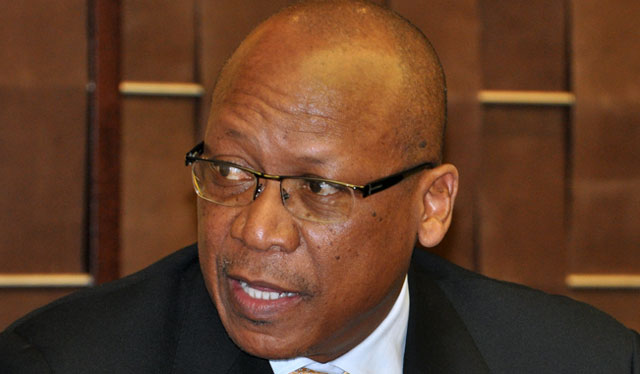
MTN interim executive chairman Phuthuma Nhleko has defended the R23,7m golden handshake given to former CEO Sifiso Dabengwa, who resigned in November 2015 following a US$5,2bn fine being imposed on the telecommunications group’s Nigerian subsidiary.
Speaking at MTN’s 21st annual general meeting of shareholders on Wednesday, Nhleko said the package paid to Dabengwa was in line with corporate governance requirements.
Dabengwa resigned from MTN on 9 November 2015, soon after the Nigerian Communications Commission imposed the record-setting fine on MTN Nigeria for failing to disconnect more than 5m unregistered Sim cards. The fine was later reduced to $3,9bn.
In the group’s 2015 annual report, published in April, MTN revealed that it had paid Dabengwa R40,6m in the 12-month period to 31 December 2015. This was made up of R23,7m for “compensation for loss of office”, along with a salary of R8,4m, post-employment benefits of R1,1m, other benefits of R2,9m and share gains of R4,5m.
Nhleko, himself a former MTN CEO, took the reins on an interim basis for six months following Dabengwa’s departure. His tenure has been extended until a full-time replacement can be found, which is now expected before the end of June. Nhleko hinted that a suitable candidate has been found.

Nhleko said on Wednesday that Dabengwa’s payout was justified. He said 30% of the payout was contractual, with the balance being for restraint of trade. “It’s standard for a lot of global operating companies to ensure the competitive position is preserved [when] exiting senior executives. In this case, that was no different.”
He said that on remuneration, MTN will always “try to abide by” the King III Report on corporate governance.
In response to a question from an aggrieved shareholder, who criticised the payout to Dabengwa, Nhleko said it could be defended based on three things.
Firstly, he said the complexities of the Sim card registration process in Nigeria should not be underestimated.
“While there is acceptance that there are certain things MTN could have done differently … one cannot underestimate the degree of complexity of what we are being asked to do [in Nigeria],” he said.
“There is no meaningful national database [in Nigeria, so] for us to register 65m people is a pretty major exercise. Those 5m [unregistered Sim cards] did not qualify. It’s quite different to Rica (South Africa’s Sim card registration legislation),” he said.
“The complexity of what was required of the operators cannot be underestimated. Having said that, there are things that MTN management on the ground and the CEO (Dabengwa) could have handled differently…”
Secondly, MTN had “certain contractual obligations” to Dabengwa that it had to meet.
“We had to honour our contractual obligations in terms of what was contracted from a remuneration perspective. Secondly, it is imprudent and not in the company’s or shareholders’ interests to have a CEO of longstanding involvement … be accessible to a competitor. A restraint was very much in order.”
Thirdly, Nhleko said one has to take a “different perspective” for someone who has been with the company for a short period of time and someone who has contributed over 17 years, as Dabengwa had done.
MTN nonexecutive director and chairman of the group’s remuneration committee, Alan Harper, also defended Dabengwa’s payout, saying he had access to a significant volume of confidential information on the group.
“Investors would have criticised the company severely if he had not been restrained and two months later had appeared at one of our competitors,” Harper said, adding that the restraint payment served to protect shareholders’ best interests. — © 2016 NewsCentral Media




